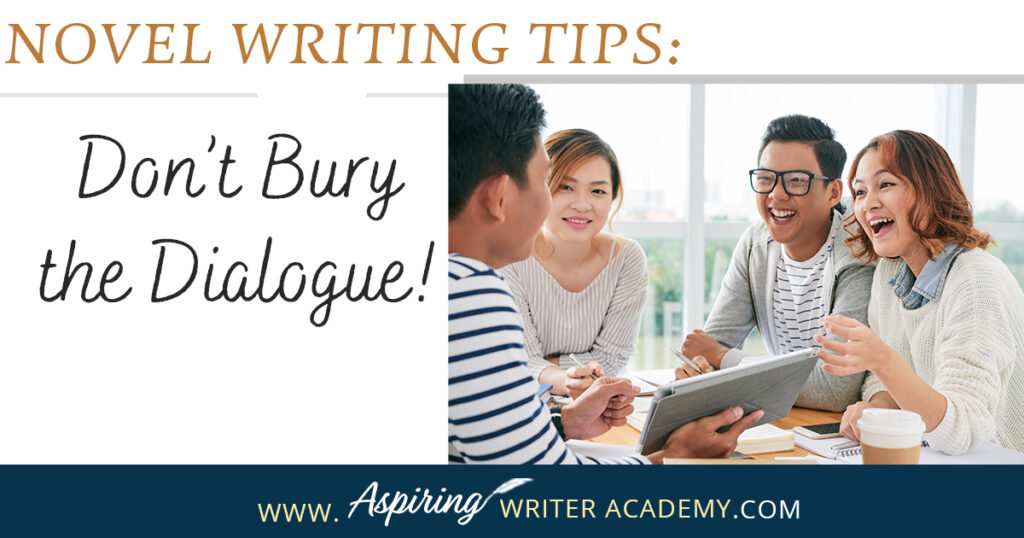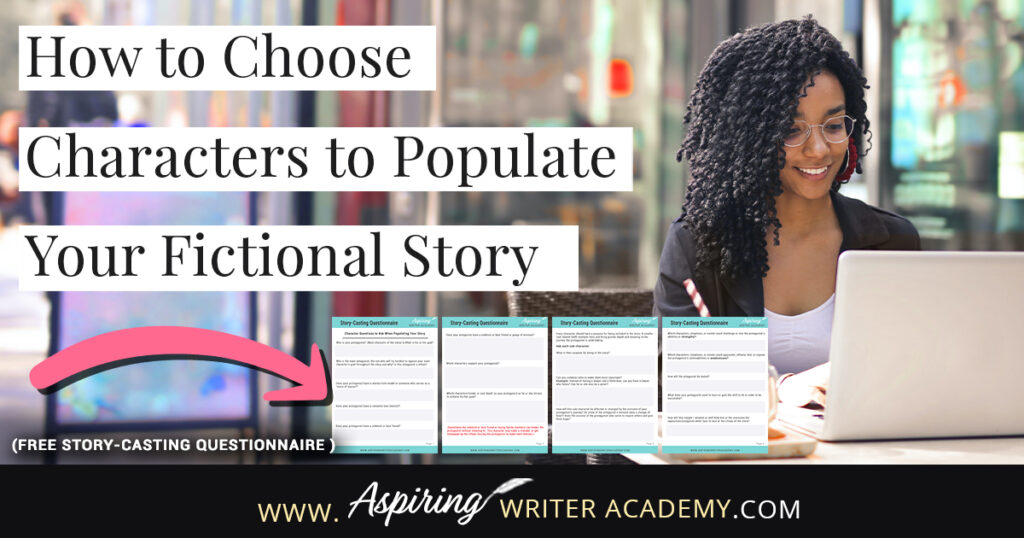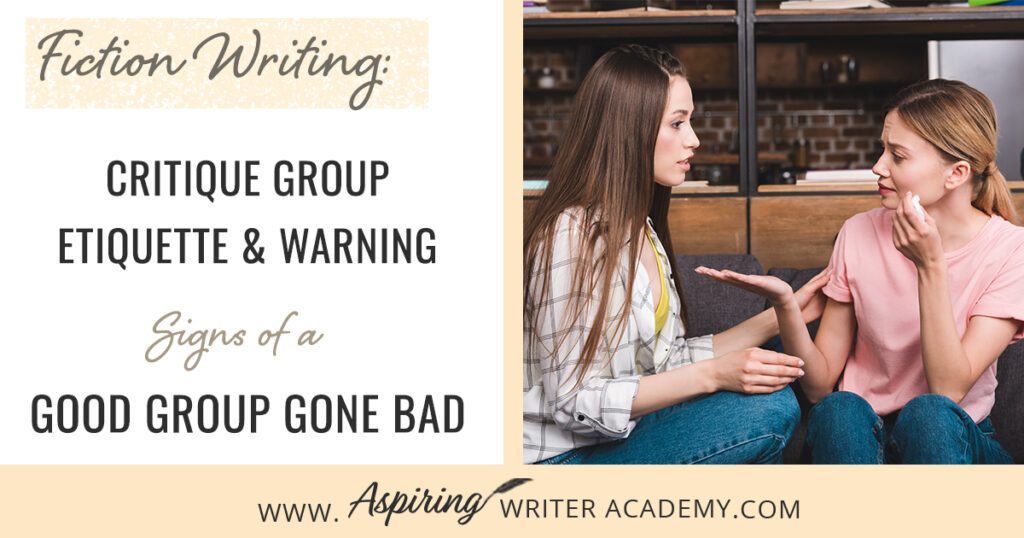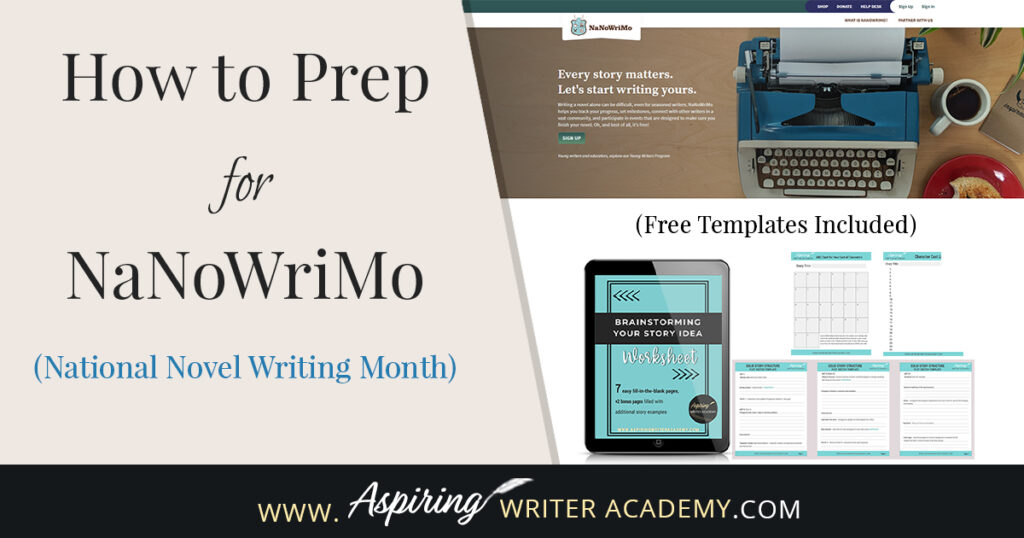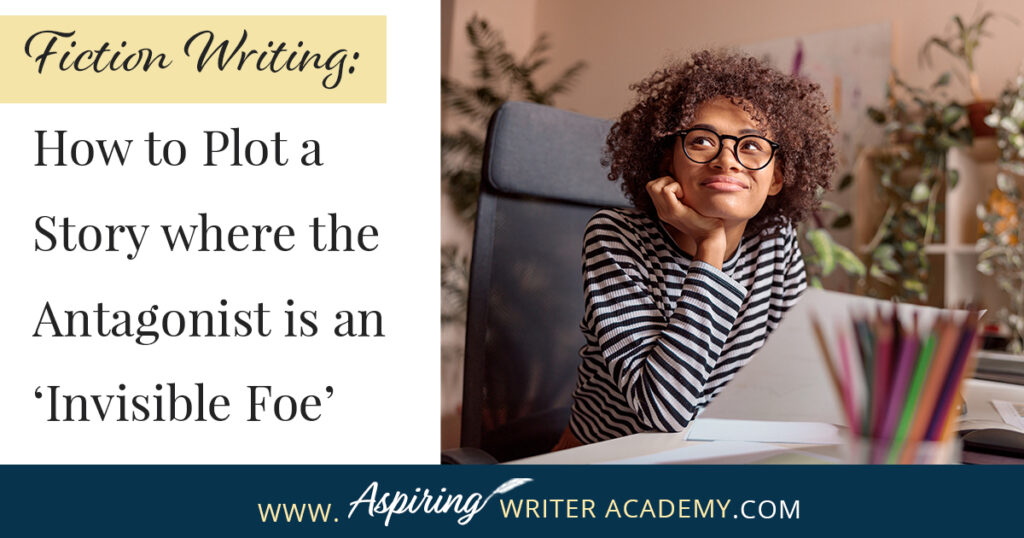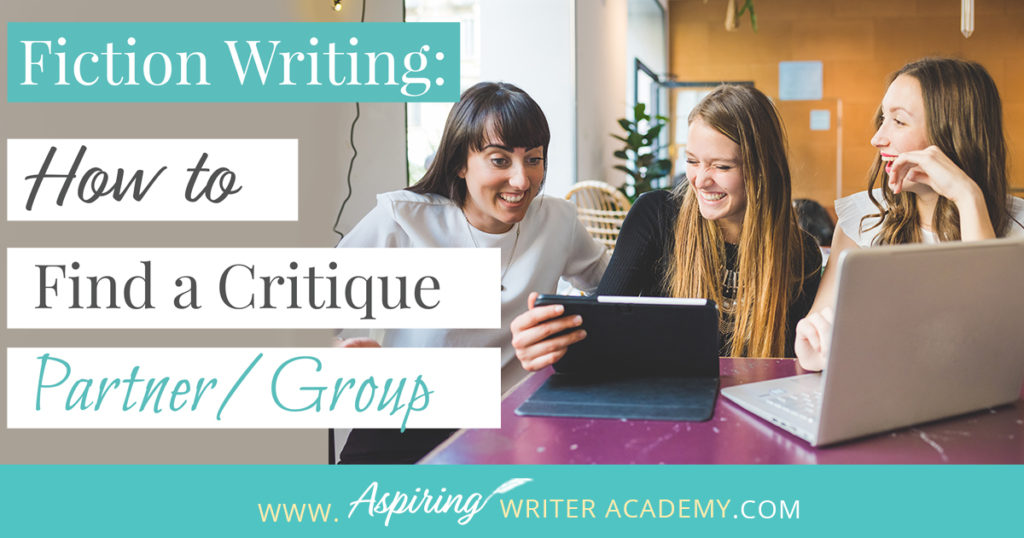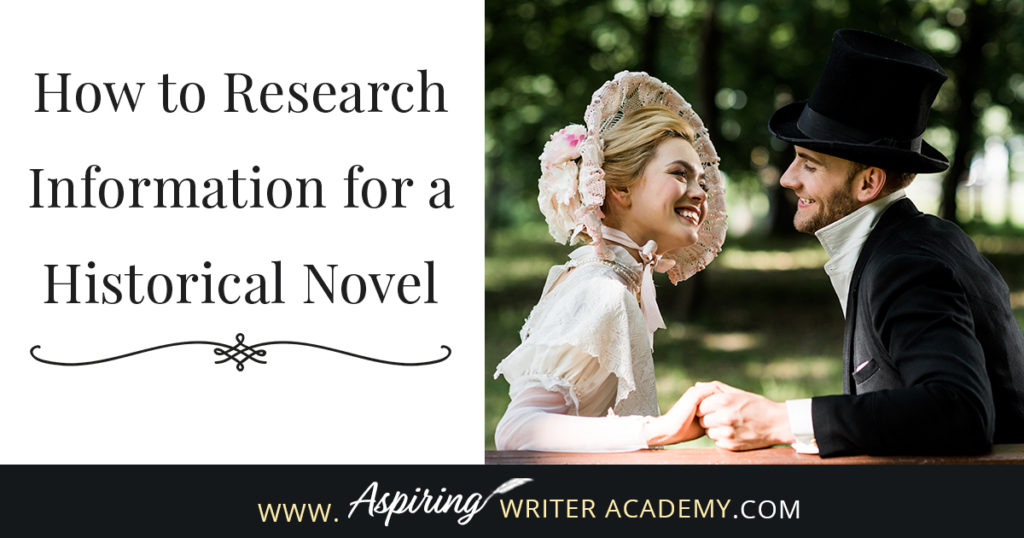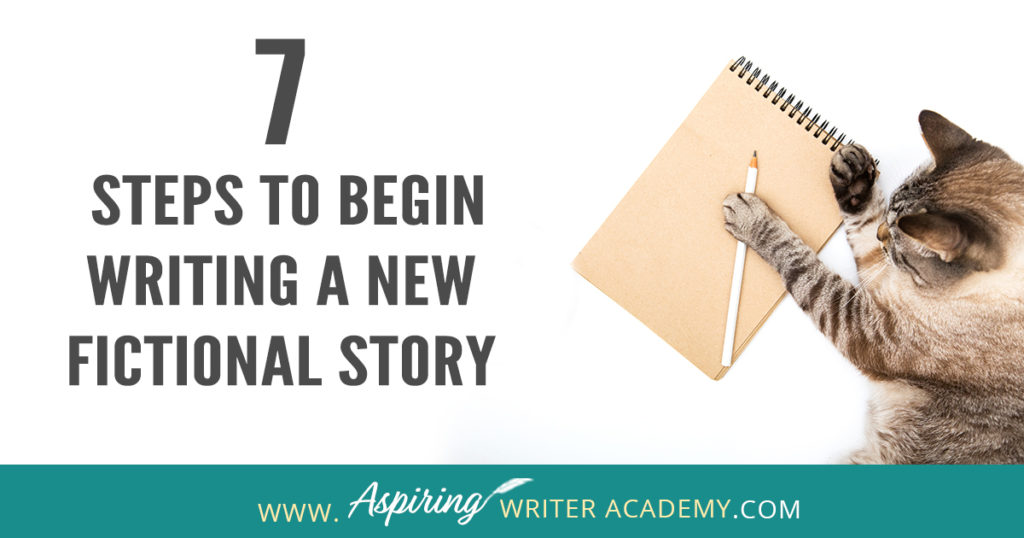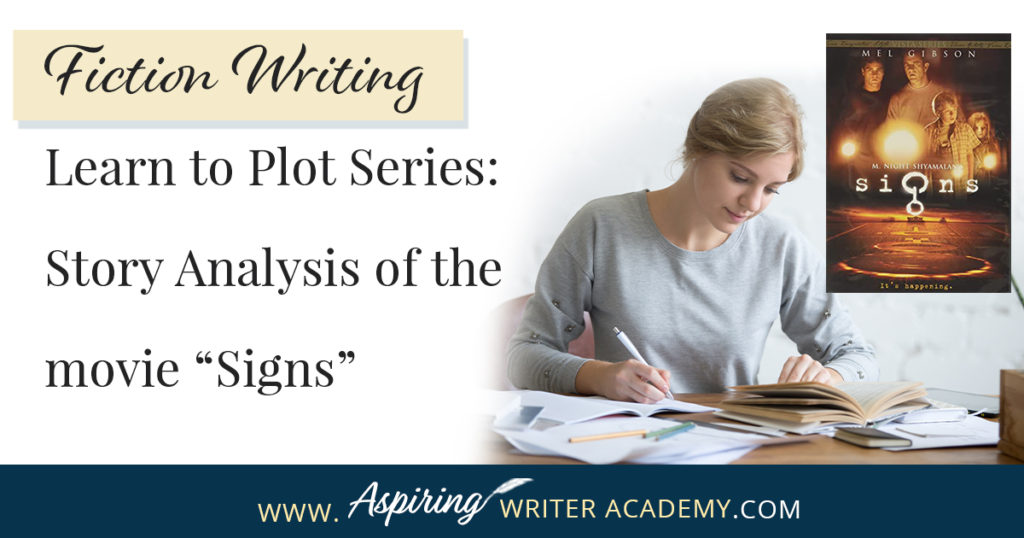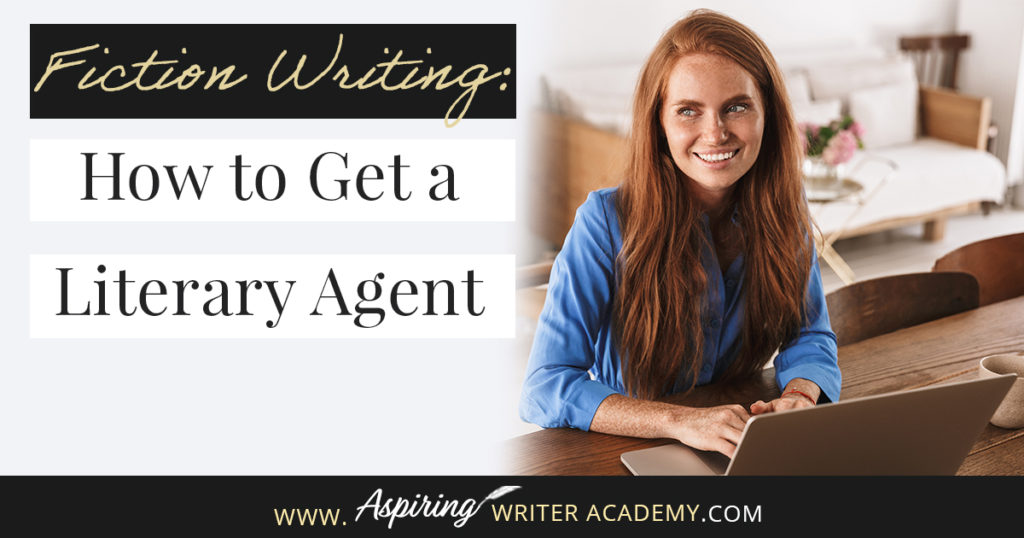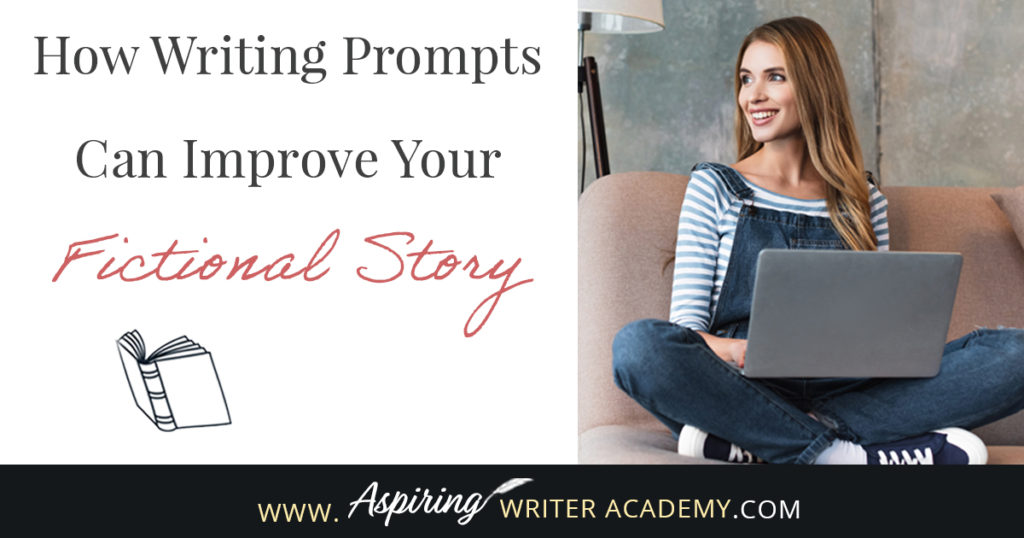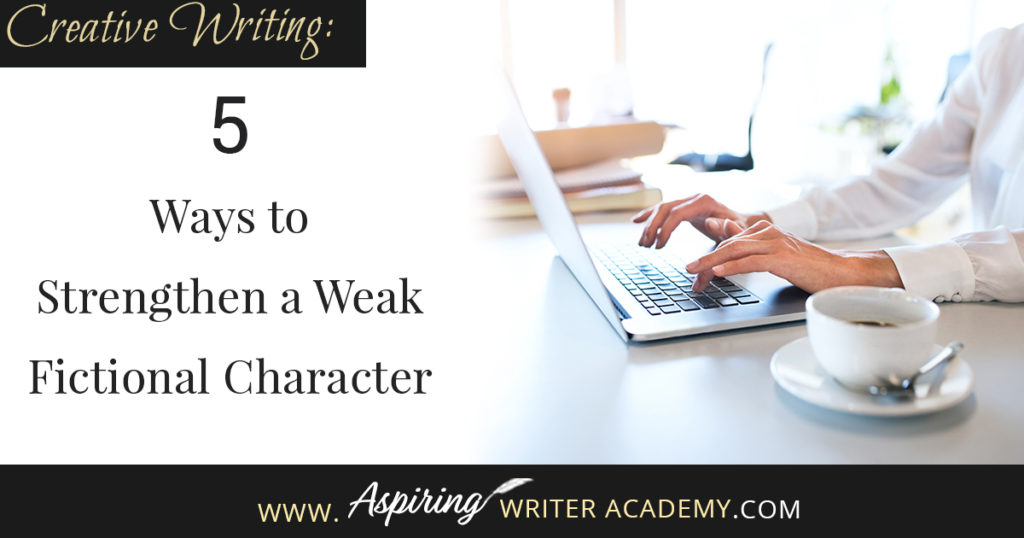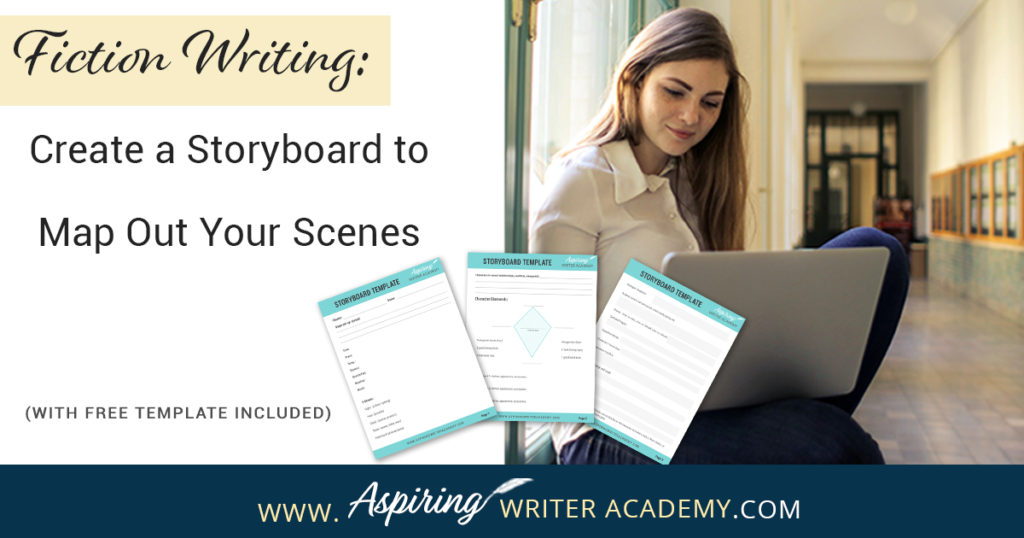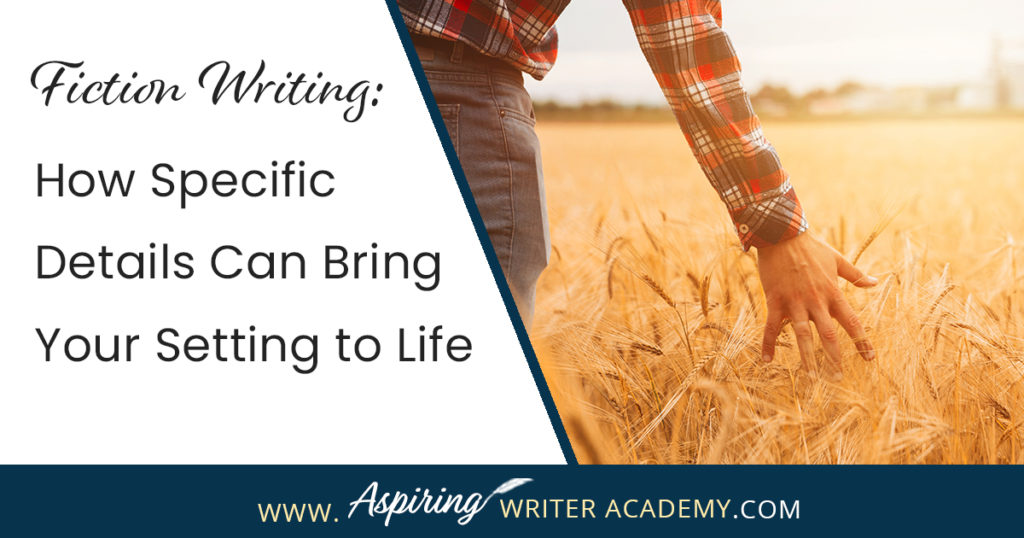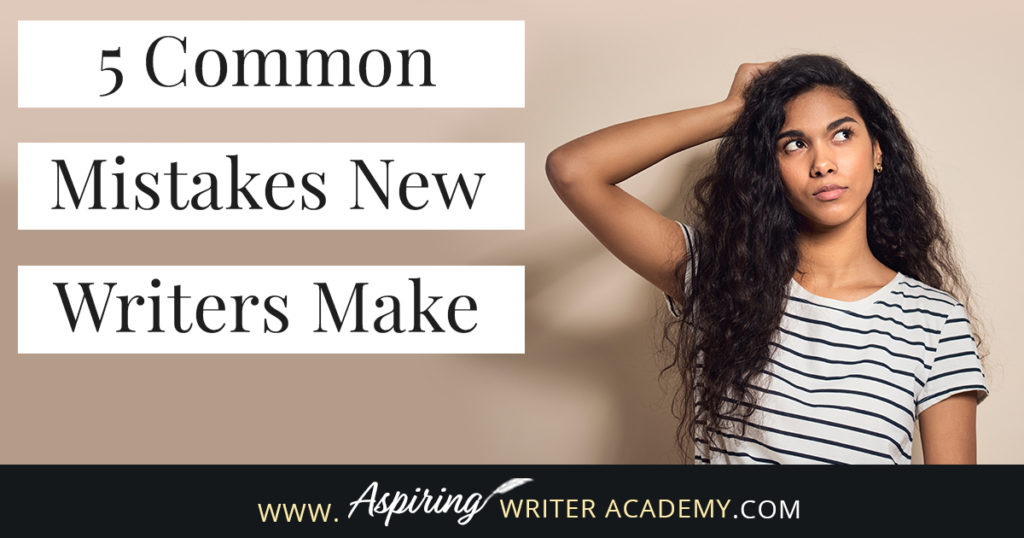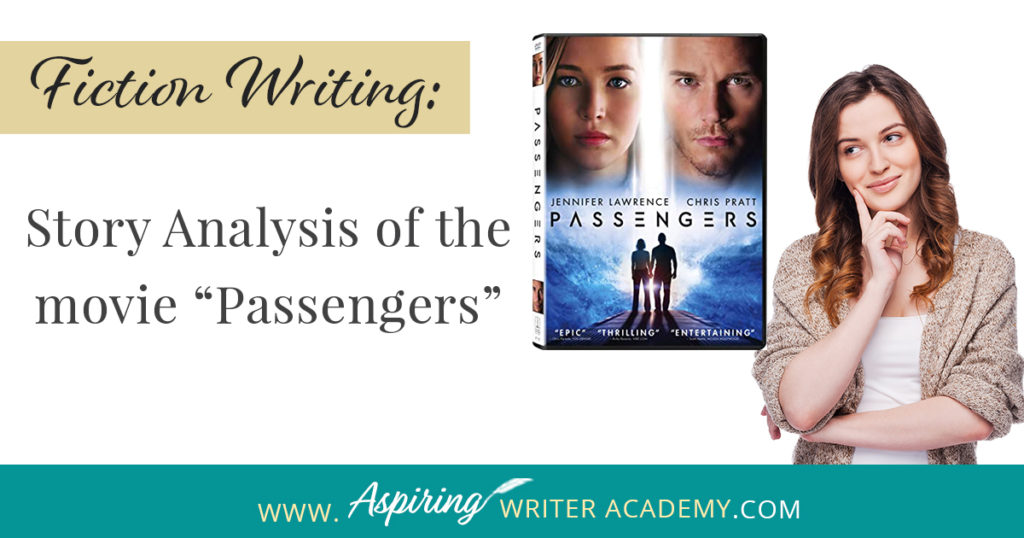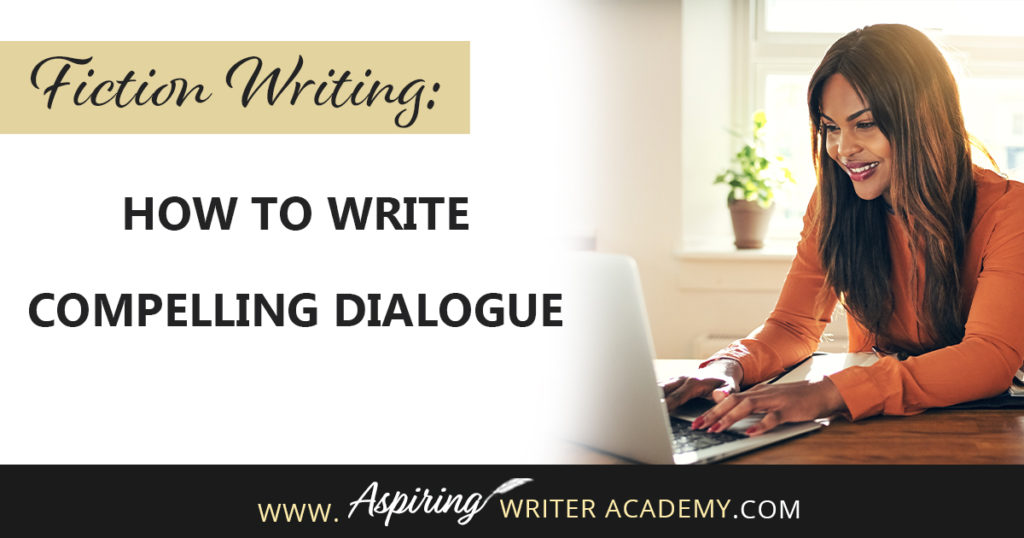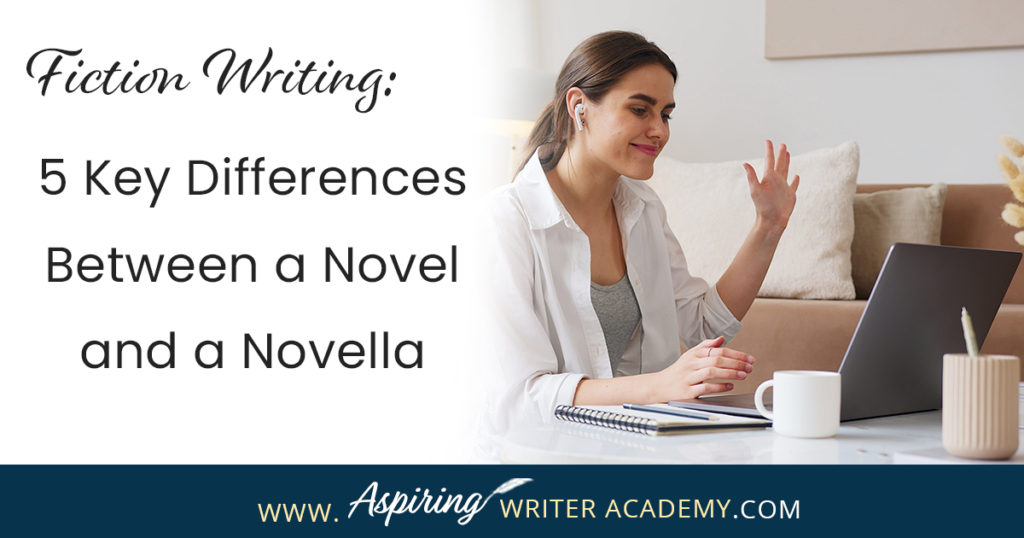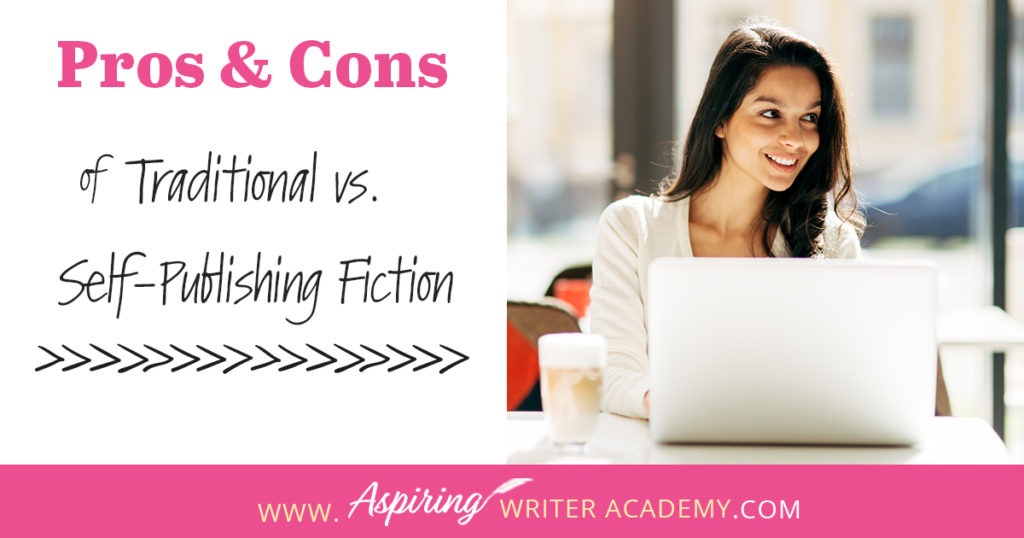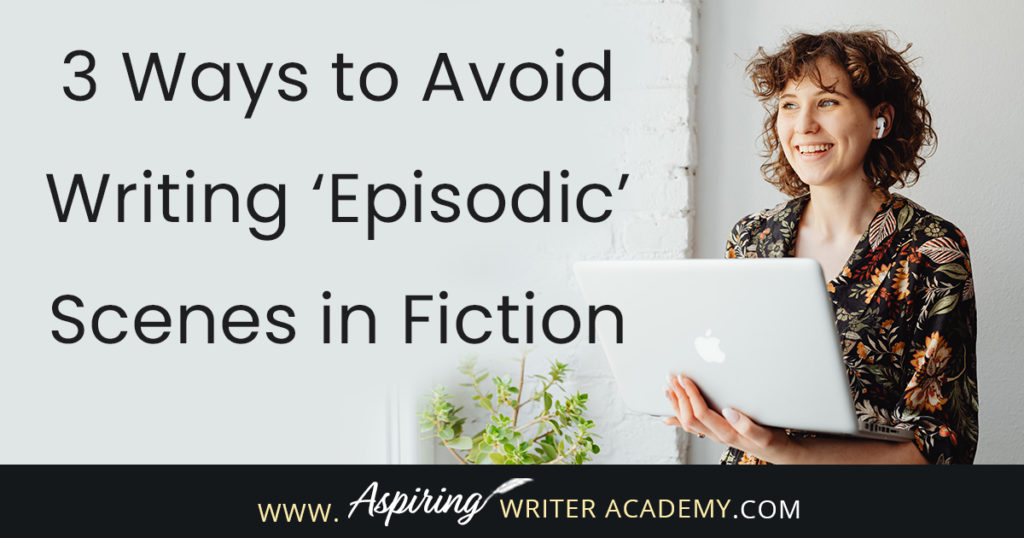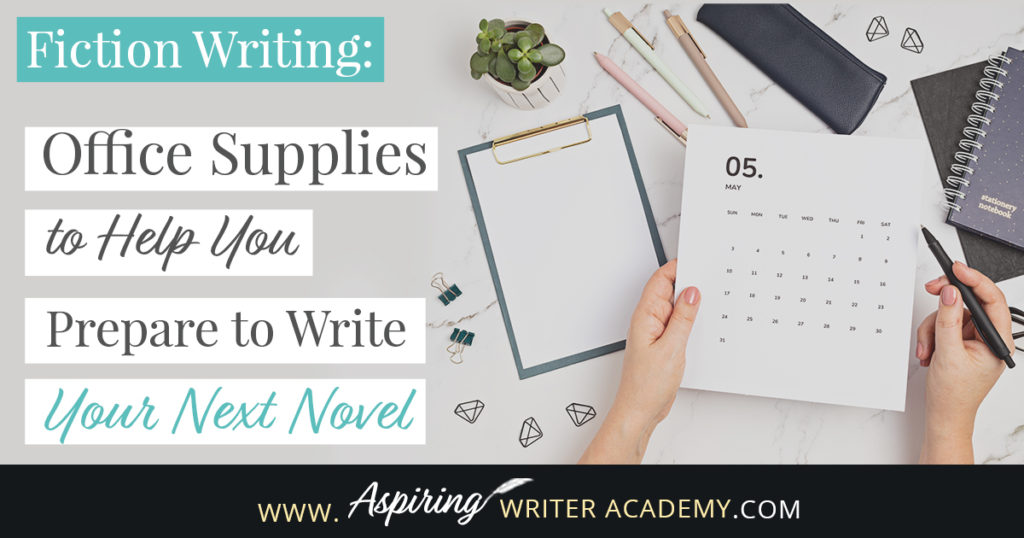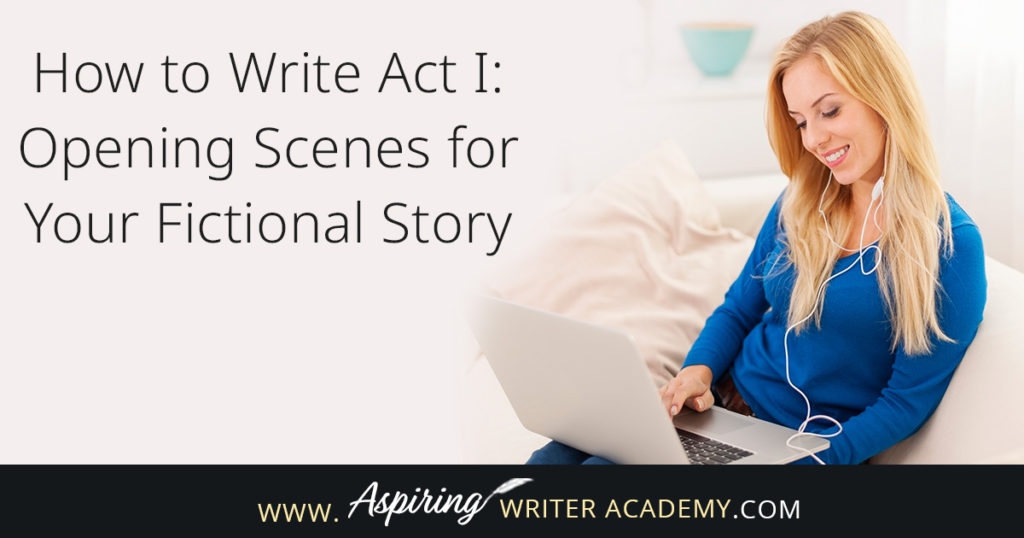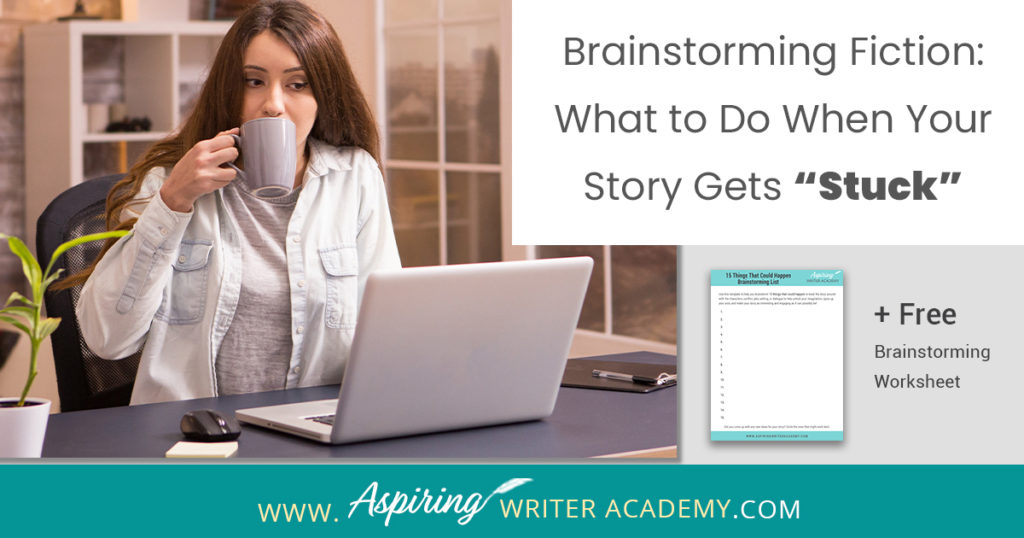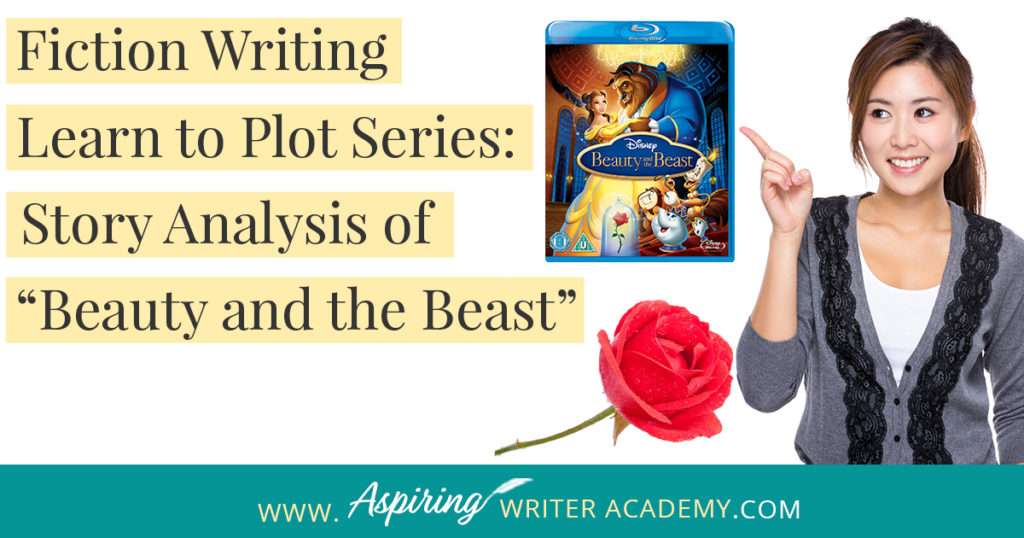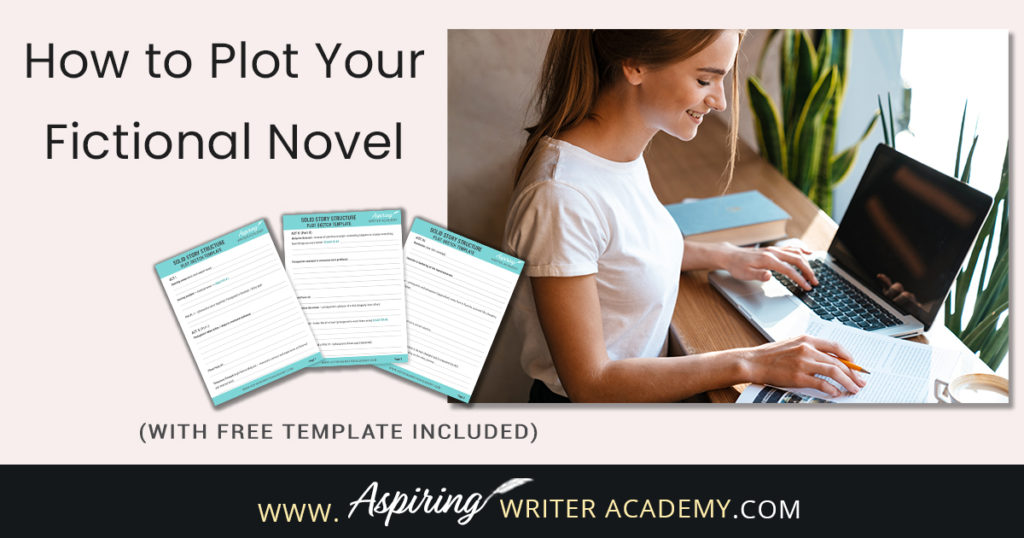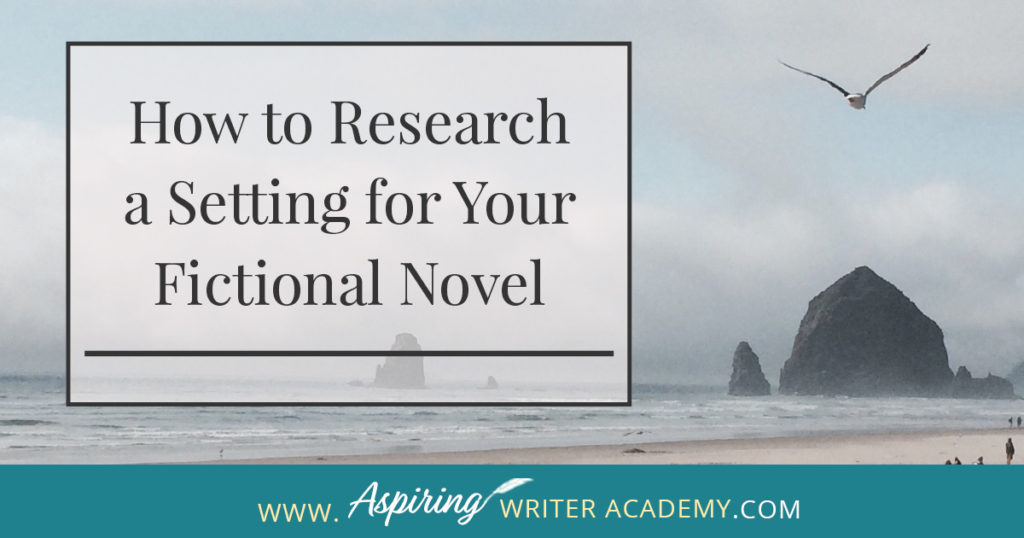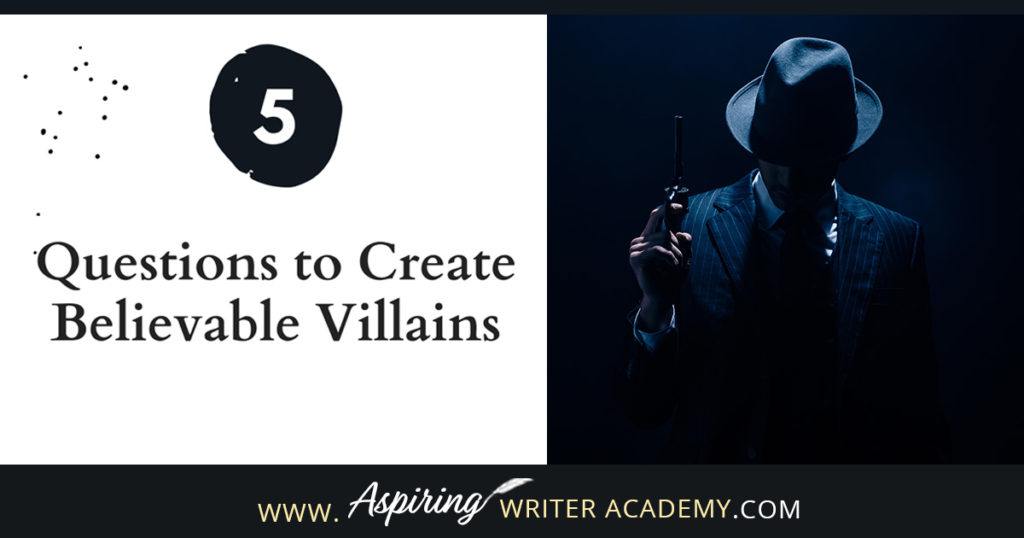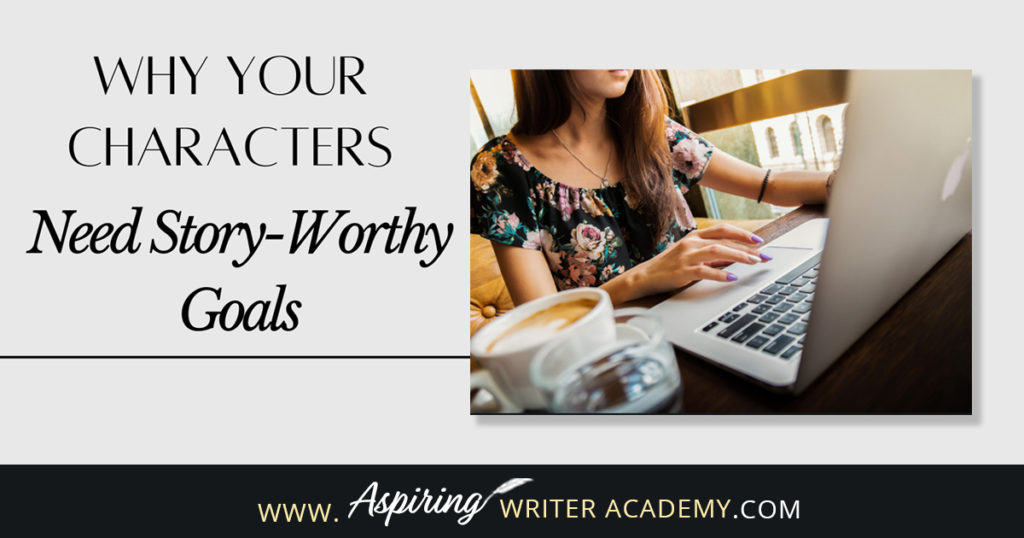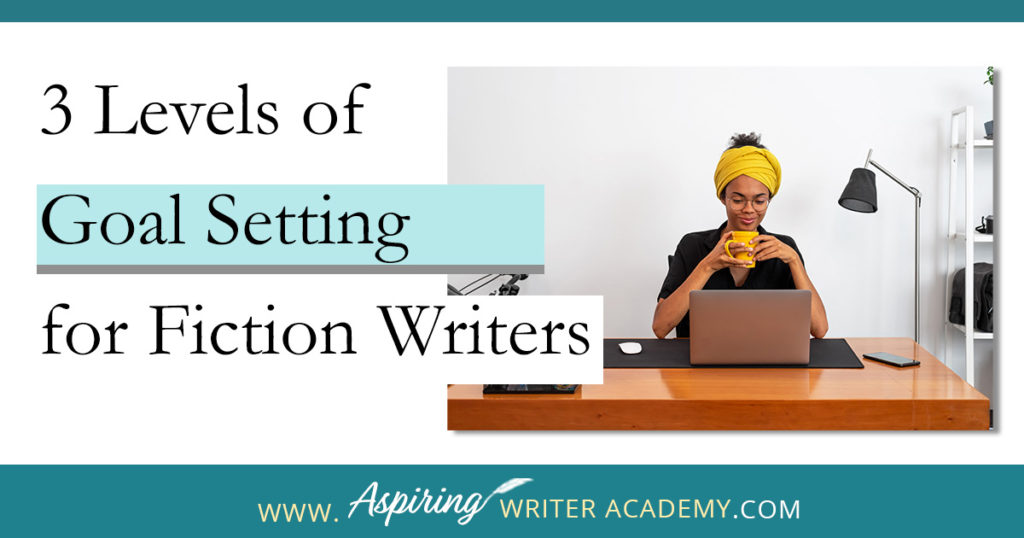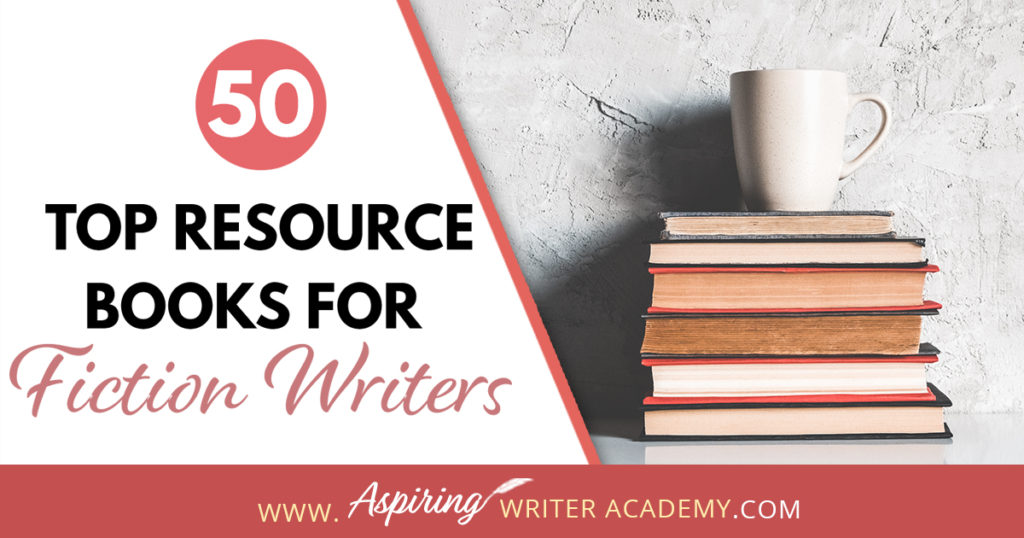Posts Tagged ‘Darlene Panzera’
Novel Writing Tips: Don’t Bury the Dialogue!
When writing the first draft of a fictional novel, authors may write fast, without giving much thought to format or style issues when it comes to dialogue. However, during the revision phase, it is important to look at each line to ensure the conversations between characters have the greatest impression upon readers.
In Novel Writing Tips: Don’t Bury the Dialogue! we show you how to make your character’s speech stand out for clarity, maximum impact, and stylistic effect.
Read MoreHow to Choose Characters to Populate Your Fictional Story
When starting to write a novel, what do you do first? Create characters or a story idea? It’s kind of like the infamous chicken and the egg question. Starting either way can be fine. But at some point, you need to figure out—who are going to be the characters in this story?
In How to Choose Characters to Populate Your Fictional Story, we discuss the different roles characters can play to create a story readers will love. Free Story-Casting Questionnaire included.
Read MoreFiction Writing: Critique Group Etiquette & Warning Signs of a Good Group Gone Bad
Are you looking to join a critique group and wonder if it will be the right fit for you?
Or have you been in a critique group for a while, but doubt whether the feedback is helpful?
Worse, are you a writer who has suddenly found themselves stuck in a toxic critique group due to changes within the group dynamic?
In Fiction Writing: Critique Group Etiquette & Warning Signs of a Good Group Gone Bad, we discuss the good, the bad, and the ugly to help you get the best feedback on your work.
How to Prep for NaNoWriMo (National Novel Writing Month)
During the month of November, thousands of writers will attempt to write a 50,000-word novel in 30 days. But what exactly is NaNoWriMo and where can you sign up? Can someone really write a novel in 30 days? How can an aspiring writer prepare for such an endeavor both personally and professionally?
In our post, How to Prep for NaNoWriMo (National Novel Writing Month), we discuss the basics of the free challenge as well as helpful tips to make your new writing project a success.
Read MoreFiction Writing: How to Plot a Story where the Antagonist is an ‘Invisible Foe’
Plotting a fictional novel may seem easy when the antagonist your main character is fighting against is a formidable person or a savage shark or beast. But what if the opposition in your story is a force of nature like an approaching storm, or if the storm is within the mind of your main character, or perhaps in the shape of a horrific disease?
See how we break down the structure for such stories step by step in Fiction Writing: How to Plot a Story where the Antagonist is an ‘Invisible Foe’.
Read MoreFiction Writing: How to Find a Critique Partner/Group
Do you have someone you trust to critique your work and give you valuable feedback? Someone who can point out inconsistencies with point-of-view, make suggestions for plot points, and offer tips to strengthen character motivation?
In our post, Fiction Writing: How to Find a Critique Partner/Group, we discuss how to connect with others, various ways a critique group can be run, and other considerations to ensure you bring out the best in each other’s writing!
Read MoreHow to Research Information for a Historical Novel
If you are interested in writing historical fiction, you may be wondering—how do you research a historical era? Where do you go to learn about the customs, currency, weapons, mode of transportation, style of dress? What kind of names, food dishes, or jobs were popular back then? Are there websites with this information?
In our post, How to Research Information for a Historical Novel, we give you several valuable resources to find the information you need to write a realistic, historical tale!
Read More7 Steps to Begin Writing a New Fictional Story
Are you interested in writing a fictional story but do not know where to begin? Do you start with characters, setting, research, or a plot? How do you create deadlines or calculate wordcount? How do you break an idea down into chapters and scenes? How do you set up a working manuscript?
Do you wish you could see how a published author prepares to write a new book? Follow along as we discuss the 7 Steps to Begin Writing a New Fictional Story so you can start writing your own story with ease.
Learn to Plot Fiction Writing Series: Story Analysis of the movie “Signs”
The best way to learn story structure is to analyze good stories. Can you readily identify each plot point in every movie you see or book you read? Or do terms like ‘inciting incident,’ ‘midpoint reversal,’ and ‘black moment’ leave you confused?
In our Learn to Plot Fiction Writing Series: Story Analysis of the movie “Signs” we will show you how to recognize each element and provide you with a Free Plot Template so you can draft satisfying, high-quality stories of your own.
Read MoreFiction Writing: How to Get a Literary Agent
If you have finished your first novel, you may be thinking about publication and how to acquire a literary agent. But are you truly ready to pitch to an agent? Do you have a website and a thriving social media platform? Have you researched which agents accept manuscripts in your genre? Do you know how to put together a book proposal?
In our post, Fiction Writing: How to Get a Literary Agent, we discuss each step you should take when seeking representation for your finished novel.
How Writing Prompts Can Improve Your Fictional Story
Some writers may love writing prompts while others think they are a waste of valuable time. Time better spent working on their story.
But what if a few quick specific writing prompt sessions could help you brainstorm plot holes, deepen point-of-view, sketch upcoming scenes, and supercharge character dialogue?
In How Writing Prompts Can Improve Your Fictional Story, we show how these fast sprints can boost motivation, improve writing skills, and enhance your fictional novel.
Read MoreCreative Writing: 5 Ways to Strengthen a Weak Fictional Character
Do you have trouble writing strong fictional characters?
Perhaps you have been told that your protagonist or antagonist or a sub-character is weak, that they need more motivation. Perhaps the character doesn’t have a strong enough story goal, or enough personality or maybe the character isn’t actively driving the story forward.
How can you “fix” a weak character and make him worthy? Follow along as we discuss, Creative Writing: 5 Ways to Strengthen a Weak Fictional Character in the post below.
Read MoreFiction Writing: Create a Storyboard to Map Out Your Scenes
What is the first step to writing a scene?
While some writers just wait to see what comes to mind, it is helpful for most writers to have a plan. Figuring out the scene details and objectives on a “Storyboard” beforehand allows you to write your scenes with ease.
If you are unsure how to craft a vibrant, compelling, purpose-filled scene, follow along as we help you with the framework in our post, Fiction Writing: Create a Storyboard to Map Out Your Scenes, with our Free Template.
Fiction Writing: How Specific Details Can Bring Your Setting to Life
The setting for your fictional story can be so much more than just the general description of a place. The right details can depict mood, personality, theme, character change, and touch the reader’s emotions in profound ways.
In our post, Fiction Writing: How Specific Details Can Bring Your Setting to Life, we discuss several techniques to help you craft meaningful scenes that will deepen your fiction and entice readers to rave about your story world as if it were a real place.
Read More5 Common Mistakes New Writers Make
New writers often hold onto various misconceptions when it comes to writing and publishing. How do you know when your work is ready to publish? Do you really need to hire an editor? What expectations are realistic when publishing a first book? Will publishing houses help a new author with promotion? In our post, 5 Common Mistakes New Writers Make, we discuss these topics and more to help you avoid blunders and launch a flourishing writing career.
Read MoreFiction Writing: Story Analysis of the movie “Passengers”
As an aspiring writer, you may have heard of plot points, pinch points, inciting incident, temporary triumph, black moment, and the climax in traditional story structure, but can you readily identify them in every movie you see or book you read?
In our post Fiction Writing: Story Analysis of the movie “Passengers” we will show you how to recognize each element and provide you with a Free Plot Template so you can draft satisfying, high-quality stories of your own.
Read MoreFiction Writing: How to Write Compelling Dialogue
Have you ever read a book where the characters’ dialogue put you to sleep?
If you write fiction, this is not something that you want anyone to say about your stories!
In our post, Fiction Writing: How to Write Compelling Dialogue, we help you create riveting, lively exchanges between your fictional characters so that your book is filled with edge-of-your-seat tension and unexpected surprises for the reader.
Read MoreFiction Writing: 5 Key Differences Between a Novel and a Novella
Are you confused about the differences between a novel and a novella? Perhaps you know one is longer than the other, but you aren’t sure if writing a novella is worth your time. Do they make any money? Who publishes novellas? Can they be used for promotion? In our post, Fiction Writing: 5 Key Differences Between a Novel and a Novella, we discuss all these things and more so that you can decide which choice is right for you.
Read MorePros & Cons of Traditional vs. Self-Publishing Fiction
If you are an aspiring writer, you may be wondering whether you should self-publish or try to have your book published by a traditional publisher. What are the benefits? The cost? How hard is it to do? Do you need an agent? How much time is involved? What resources do you need or what skills do you need to know? In our post, Pros and Cons of Self-Publishing Fiction, we give you some of the advantages and disadvantages to help you decide which path is right for you.
Read More3 Ways to Avoid Writing ‘Episodic’ Scenes in Fiction
Has anyone ever called your story ‘episodic?’ Were you left wondering what that term even meant? Perhaps you heard the word ‘episodic’ used negatively by an agent or editor at a conference, or by a critique partner, a Beta reader, or…in a rejection letter. In our post, 3 Ways to Avoid Writing ‘Episodic’ Scenes in Fiction, we help you overcome this common writing pitfall so you can strengthen your story and keep readers turning pages.
Read MoreFiction Writing: Office Supplies to Help You Prepare to Write Your Next Novel
Are you new to Fiction Writing? Have you wondered which office supplies might be helpful when preparing to write your first novel?
Or are you a published author preparing to write your next book?
In our post, Fiction Writing: Office Supplies to Help You Prepare to Write Your Next Novel, we give you a handy checklist of supplies for writing, plotting, setting up your office, and for creating a Story Binder that keeps all your templates and brainstorming ideas in one place.
Read MoreHow to Write Act I: Opening Scenes for Your Fictional Story
Many writers come up with an idea for a great story but get stuck on the opening scenes.
* Where do you start?
* What should be included in chapter one?
* How should you introduce the characters and the story world?
* What exactly is an ‘inciting incident?’
* When do I insert backstory?
* What is Plot Point I?
In our post, How to Write Act I: Opening Scenes for Your Fictional Story, we answer each of these questions to help set your writing on the road to success.
Read MoreBrainstorming Fiction: What to Do When Your Story Gets “Stuck”
When writing fiction, there may be times when your creativity stalls and you don’t know which way the story should go. Or perhaps the obvious next step forward seems boring.
In our post, Brainstorming Fiction: What to Do When Your Story Gets “Stuck” we give you a tool that can be used for characters, conflict, plot, setting, or dialogue to unlock your imagination, spice up your acts, and make your story as interesting and engaging as it can possibly be!
Read MoreLearn to Plot Fiction Writing Series: Story Analysis of “Beauty and the Beast”
Many writers believe they can just sit down and write whatever pops into their head. However, most Popular Fiction contains specific components or “Plot Points” that serve to move a story forward from beginning to end.
In our Learn to Plot Fiction Writing Series: Story Analysis of Disney’s “Beauty and the Beast” we will show you how to recognize each element and provide you with a Free Plot Template so you can draft satisfying, high-quality stories of your own.
Read MoreHow to Plot Your Fictional Novel (with Free Template Included)
Solid Story Structure. What is it? If you wish to write a satisfying fictional story for your readers, then you must learn the specific elements or ‘Plot Points’ that nearly all Popular Fiction stories share. Using our Free Plot Sketch Template, included in our post, How to Plot Your Fictional Novel, you will be able to identify the various turning points in both movies and books and keep your own stories on track from beginning to end.
Read MoreHow to Research a Setting for Your Fictional Novel
Settings. Where does your story take place? Is it a real place?
Even if you choose to ‘make up’ a setting, you may still want to base some of the details off a real place to make it feel real. Researching a setting may also inspire character or plot details.
In our post, How to Research a Setting for Your Fictional Novel, you can come along on a photo-journal research trip and learn a few tricks to create realistic settings for your own story.
Read More5 Questions to Create Believable Villains
What is the difference between an antagonist and a villain? What motivates a villain to do heartless, hurtful, vindictive, terrible things? How can you bring the villain in your fictional story to life for your reader in an identifiable, believable, understandable way?
In our post, 5 Questions to Create Believable Villains, we explore the first questions you should ask when you start to brainstorm this type of character for your story.
Why Your Characters Need Story-Worthy Goals
Have you ever been told by an agent or editor, reviewer, critique partner, or reader that your writing was blah because your main character’s goal was weak, not strong enough, that it wasn’t ‘story-worthy?’
What does ‘story-worthy’ even mean?
In the post below, we will discuss what makes a goal story-worthy so that you can write engaging stories that hold your reader’s attention from beginning to end.
3 Levels of Goal Setting for Fiction Writers
Before you sit down to write a book, set yourself up for success by getting clear on what you hope to achieve.
Why do you want to be a writer? Do you have a career plan? What is the purpose for your story? Are your character’s goals strong enough to impact readers?
In the post below, we show you how to set S.M.A.R.T. goals on three distinct levels: Goals for you (the author), Goals for your story, and Goals for your fictional characters.
50 Top Resource Books for Fiction Writers
Aspiring Writer Academy recommends these 50 Top Resource Books for Fiction Writers. While there are numerous books available in bookstores and online that offer fantastic teaching, inspiration, and advice about the writing and publishing industry, we have narrowed the options down to help you boost your fiction writing career.
Read More